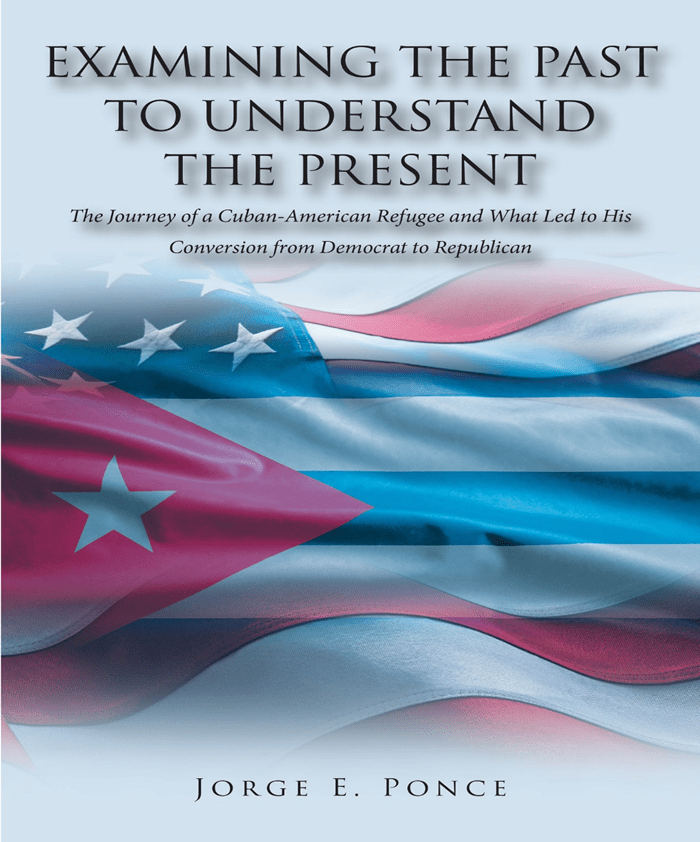With the midterm elections scheduled for November 3, 2026, Republicans can’t afford to lose their majorities in the U.S. House of Representatives and the Senate. If they lose the House, Democrats will be quick to launch impeachment inquiries — and the President’s “Keep-America-Great” agenda will be hampered significantly with dire consequences for Republicans in the 2028 presidential election. The stakes are high, and it’s time to get busy.
To prevent this catastrophe from happening, Republicans must do everything possible to retain the Hispanic vote. It’s never been more important than now, but there are some warning signs happening as we speak.
According to statistics from the 2020 decennial census, Whites make up 57.3% of the U.S. population, while Hispanics make up 19.5%[1]. Not all Hispanics in this category are U.S. citizens and can vote, but the same holds true for Whites. Without capturing a large portion of the Hispanic vote, Republicans would be in a life-support situation to keep the majorities that they now hold in both chambers of the U.S. Congress.
Hispanics supported Candidate Trump by wide margins in the last three elections. In 2016, they gave the President 28% of their vote; in 2020, they gave him 36%; and in 2024, they gave him 48%[2]. They liked the policies that Trump campaigned on – primarily on the economy and immigration – but they have not been as supportive of Republican candidates lately.
Two Democrat Governors – Spanberger in Virginia and Sherill in New Jersey – defeated their Republican opponents in November 2025. And then, the unthinkable happened in December 2025: a Democrat Mayor of Miami (Higgins) got elected, making her the first Democrat in over 30 years to the city that many considered the Cuban Mecca[3]. And more recently, in January 2026, Democrat Emett won the special election to serve as a U.S. Representative for Texas 18th congressional district (which covers part of Houston). These warning signs cannot be ignored by Republicans!
Looking at the election results in Miami, one needs to get a handle about what is triggering the dissatisfaction of Hispanic voters who turn their back on Republican candidates. This city has large populations of Cubans, Venezuelans, and Nicaraguans – most are political refugees/legal immigrants who have fled the communist regimes of Diaz-Canel, Maduro, and Ortega. The majority support the decision of President Trump to remove the illegitimate President of Venezuela (Maduro) from power. Nevertheless, most object to the ICE raids and deportation of immigrants that while entering the United States illegally have secured jobs, pay taxes, and have no criminal record.
When I have questioned some of my Hispanic friends and relatives on this issue while visiting Miami, they have objected strongly to the tone that Deputy Chief of Staff for Policy and Homeland Security Stephen Miller uses when describing the President’s immigration policies. Some think that he shows no mercy towards the plight of these immigrants and favors their immediate deportation.
From a legal perspective, Stephen Miller is not entirely wrong. Illegal entry and reentry into the U.S. are both criminal offenses – the first is a misdemeanor and the second is a felony[4]. When liberal media outlets claim that illegal immigrants commit less crimes than native-born Americans[5], I am sure that Miller objects – based on the U.S. immigration laws, although realizing that most Americans are not very familiar with them. Democrats also try to muddle this issue by labeling President Trump’s policies as “anti-immigrant’ policies – without distinguishing between “legal” and “illegal” immigrants.
But Democrats have been vociferous by saying that no one is above the law. In fact, prominent Democrats in the Oval Office, the House of Representatives, and the Senate have condemned illegal immigration. Even Senator Bernie Sanders proclaimed that the United States cannot afford to have open borders. But all these proclamations were said in the past. Now with Donald Trump as the 47th President, they’ve changed their tune to support open borders and protect illegal immigrants. See video prepared by Congressman Scott Fitzgerald (R-WI-05), which he showed at a February 11, 2016 congressional hearing with U.S. Attorney General Pam Bondi[6]
Even Cesar Chavez of “Si Se Puede/Yes We Can” fame and co-founder of the United Farm Worker Labor Union was strongly opposed to illegal immigration[7] – because it lowered the wages and/or jobs of legal workers. Nevertheless, times have changed since Chavez times, and there is a shortage of applicants for many jobs in the U.S. economy triggered by the reduced fertility rate of women.
But politics is a game that is not limited to legal frameworks and statistics – optics play a big part – especially when a large portion of voters get their news from soundbites from fake-news media outlets.
So, former President Regan signed an immigration bill in 1986 that granted amnesty to 3 million illegal immigrants[8]. He did this because he was a compassionate person who thought that his decision would be a one-time solution to this challenge. But as the saying goes, no good deed goes unpunished. Under the Biden’s administration, anywhere from 6 to 20 million illegal immigrants (depending on the sources used) crossed the southern border.
President George W. Bush also wanted to come across as a compassionate conservative and would have signed into law the Dream Act in 2001 – which would have granted permanent residency and a pathway to citizenship to children who came to U.S. through illegal means[9]. Although the law was hotly debated in the U.S. Congress, it never garnered a majority of votes for passage.
At a speech in 2010 to the American University School of International Service[10], former President Obama said the following: “Ultimately, our nation, like all nations, has the right and obligation to control its borders and set laws for residency and citizenship. An no matter how decent they are, no matter their reasons, the 11 million who broke these laws should be held accountable.” These words are not that much different than the ones coming out from Stephen Miller or President Trump.
But there is a “but” to President Obama’s words in the previous paragraph. He said them during the third year of his first term in the Oval Office – when the majority of the 3 million deportations in his two terms took place. In fact, he became so unpopular with Hispanics nationwide that most resorted to calling him the “Deporter in Chief.”
President Obama had to do some quick thinking if he wanted to win a second term in 2012. In June 2012 – five months before the presidential election – he signed the DACA executive order that gave a 2-year deferment from deportation to children brought to the U.S. through illegal means. This was enough for Obama to win a second term with 71% of the Hispanic vote.
To secure his legacy with Hispanic voters and to protect the Democrat candidate in the 2016 election, President Obama introduced in November 2014 the DAPA program – that allowed certain illegal parents of children who were either U.S. citizens or permanent resident a 3-year period of deferred action and work authorization[11]. However, the program faced immediate legal challenges that prevented it from ever being fully implemented.
So, what is President Trump to do now to secure Republican majorities in the U.S. Congress and protect the Republican ticket in 2028?
During an interview on February 4, 2026, Tom Llamas from NBC asked President Trump whether it was his mission to deport everyone who came in illegally or just people who had come illegally but had committed additional crimes[12]. And this was President Trump’s response: “We are totally focused on criminals, really bad criminals. Now, you could say people that came in illegally are criminals. But I’m talking about murderers from different countries. We have 11,888 murderers that Biden and his group let into our country.” (See 00:09:27-00:09:47 (21 sec) of the interview).
So, this says it all. President Trump has embraced a more compassionate immigration policy – like his predecessors did. The challenge is that he needs to communicate this new policy to the rest of his Cabinet immediately – so that they are all reading from the same sheet. And this new policy has to be widely publicized to the media outlets before November 3, 2026.
There are other important issues that need to be addressed that impact immigration in the near future: birthright citizenship and the placement of a U.S. citizenship question in future decennial censuses.
Like Cesar Chavez would say to President Trump: “Si Se Puede/ Yes We Can” win the midterm election in November 2026 with a majority of the Hispanic vote.
[1] https://www.cnn.com/2021/08/12/politics/us-census-2020-data
[2] https://www.axios.com/2025/06/26/trump-harris-latino-voters-2024-election-pew
[3] https://www.pbs.org/newshour/politics/a-democrat-wins-miami-mayors-race-for-the-first-time-in-nearly-30-years
[4] https://felonfriendly.us/crime/penalty-for-entering-us-illegally/
[5] https://www.npr.org/2024/03/08/1237103158/immigrants-are-less-likely-to-commit-crimes-than-us-born-americans-studies-find
[6] https://www.youtube.com/watch?v=5Lnswiwqvn0
[7] https://humanrights.fhi.duke.edu/chavez-ufw-and-wetback-problem/
[8] https://www.salujalaw.com/when-reagan-gave-amnesty-remembering-the-1986-immigration-reform-that-legalized-3-million-people
[9] https://en.wikipedia.org/wiki/DREAM_Act
[10] https://obamawhitehouse.archives.gov/realitycheck/the-press-office/remarks-president-comprehensive-immigration-reform
[11] https://legalclarity.org/barack-obamas-immigration-executive-orders-daca-and-dapa/
[12] https://rollcall.com/factbase/trump/transcript/donald-trump-interview-tom-llamas-nbc-news-february-4-2026/








